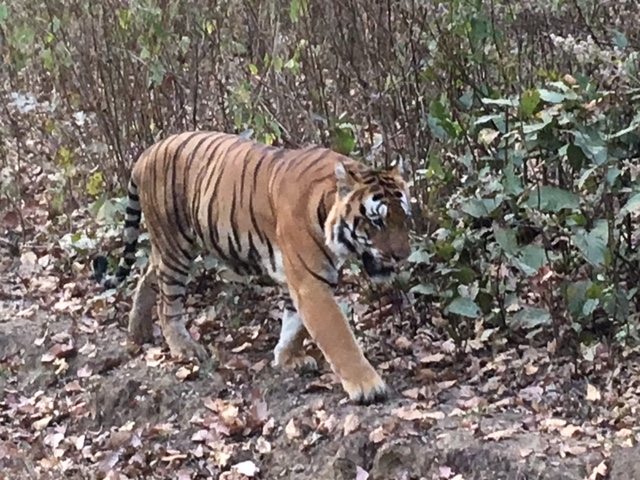You have /5 articles left.
Sign up for a free account or log in.
Brain still befogged by jet lag, I nonetheless wanted to collect some thoughts about my recent travels before they’re lost to time.
First, a public thanks to Peter Greene for guest blogging in my absence. I’ve had the chance to catch up on his posts and the resulting reader comments and couldn’t be more pleased with how it all went down.
One of the themes I hope readers can take from Peter’s writing here and at his home base is to better understand the attitudes and orientations students bring to college and how those things are shaped by what they experience in primary and secondary schools.
As I consider my own evolution as an instructor, I find it is primarily rooted in a shift from believing student struggles are rooted in their deficits, to seeing how their behaviors are instead governed by the systems in which we ask them to work, or to use a more accurate word, “perform.”
I have lost count of the people who lament how students approach reading for class, sometimes believing it a kind of generational defect, likely rooted in young people’s smart phone obsessions. For them, I can point to Peter’s post on “Kafkaesque Reading” which demonstrates how students are actively discouraged from contextualizing what they read, how an understanding and critical evaluation of the full text is subsumed to a very narrow and significantly distorted version of “close reading.” If students spend their pre-college years actively discouraged from reading in ways we wish them to do in college, the source of their struggles isn’t so mysterious.
Much of primary and secondary education is now designed around a kind of performance of intelligence or achievement that passes muster as “schooling” but is divorced from “learning.” This is not the fault of students or their teachers, but a system which has been terribly distorted by so-called education “reform.”
So, what I learned on vacation…
I don’t know. I'm not sure.
I know I learned a lot of stuff, but I don’t think I’ll recognize what exactly I’ve learned for quite some time yet. I think this reflects how learning tends to work when we’re focused on learning, as opposed to “performance.”
Ostensibly the trip was designed around visits to four different national parks in India, some of the last places on Earth where you can observe tigers, rhinos, water buffalo, and other species in the wild.
We did that. It’s quite a thing to see a full-grown tiger saunter out of the woods, almost invisible until it fully clears the brush, sidle next to your jeep and saunter down the road like he owns the place…because he does. You find tiger by listening for the alarm calls of deer because you're not going to see the tiger until the tiger decides it wants to be seen.
At the Kaziranga park in the Assam region, we were among over half of the existing great horned rhino population. I did not know one could become blasé over the sight of a rhino.
But the trip also involved extensive travel around the country, multiple flights followed by 4-8 hour drives through rural areas. I saw a lot of India out of van windows. I saw that cows (and goats) really do wander the streets. I learned that every road has one more lane than it appears. A two-lane road is really three, with a “middle” lane open to negotiation, depending on the size and speed of your vehicle. Horns are used to signal one’s presence, rather than express anger, with heavy trucks helpfully suggesting “blow horn” on their bumpers so they nudge over, making that extra lane a little wider.
Every vehicle carries at least one more person than it seems designed for. A motor scooter for one always has a rear passenger, and maybe a couple of goats as well. A cyclist may have someone riding both the bumper and the handlebars. I kept thinking about how a lack of resources seemed to engender a culture of sharing, in contrast to the U.S., where our national abundance seems to lead to individual hoarding. Surely someone has written about this.
On the trip I realized that without any direct study I’ve become a decent bird spotter. A previous trip to the Amazon introduced me to the activity and this time around I realized I’d learned how to use context to identify a particular species. If birds are skimming low across the surface of a body of water, they’re likely cormorants. If a little flock of colorful guys passes overhead too quickly to get a picture, those are parrots.
A barbet call sounds like a truck backing up.
Really, I experienced far too much to articulate what I might’ve learned, but I know that the experience has made me far more motivated to dig in and learn more. Having seen different aspects of India, its culture and its wildlife, makes me curious to make sense of those experiences. Now that I’m home, I’m cracking all the books I was supposed to read before I left.
This reminds me of how important experience and context is to any learning, and how often students are closed off from being able to use their experiences or be given context when engaged in their schooling.
I think school often gets it backwards. In my fiction writing courses, I used to spend the first six or so weeks working through a textbook with chapters on character, setting, point of view, etc… believing that this information would lead to superior work once students started writing their own stories.
It didn’t because there was no experience for that information to latch on to. Now, I have students writing stories from the first day of class, so when we read and discuss character, they think about the characters they’re trying to create.
I could read endlessly about the struggles and potential of a “rising India,” but having seen the difference between the Taj Banglore hotel (a place so fancy it made me uncomfortable), and rural villages without even paved roads, I can better appreciate the social, political, cultural tensions at work in the country.
It would take me years to become expert on any of these things, but experience has at least opened the door, should I decide to walk through it.
I may never go back to India, but I am stamped with the experiences nonetheless, and reminded that when it comes to learning, context and curiosity must lead the way.






